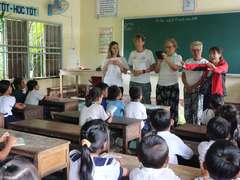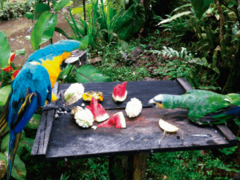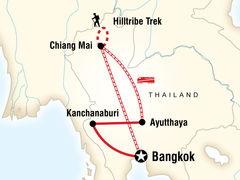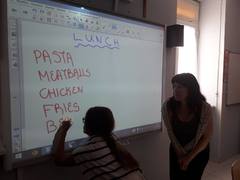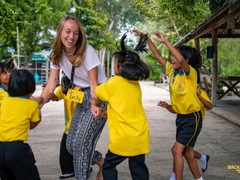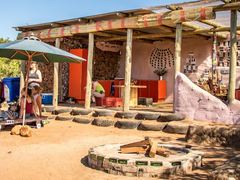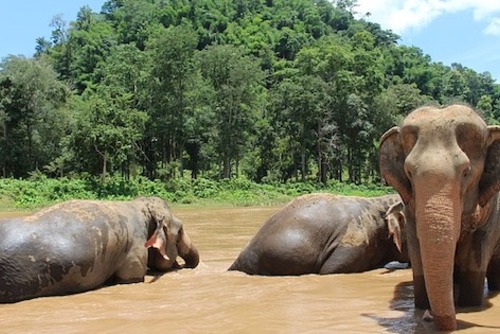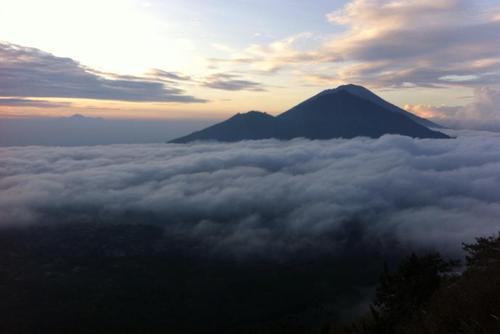We employ a number of projects to help the peoples of our area make a better life for themselves while still retaining their cultural identities. We believe that with a strong, active community the hilltribes can make the transition to a beneficial coexistence with lowland Thai society and combat such issues as drug abuse, erosion of culture and trafficking of women and children.
We accept hundreds of volunteers throughout the year, and many of our jobs will broaden your experience of the world.
We are very happy to accept volunteers from 2 weeks up to 3 months, although we do recommend a minimum of a month so that you can fully experience everything - staying for 2 weeks, while still worthwhile, is just enough time to get settled in before you have to leave. The vast majority of these volunteers have expressed their wish to have stayed longer.
The main purpose of the volunteer work in Chiang Rai is to strengthen and support the local culture and communities. Volunteers need to be flexible at the time of their placement to be involved in the tasks that are taking place at the time they are there to volunteer – although volunteers come in on a particular programme, there are various common tasks which involve all volunteers and staff, from the directors to the cleaner. Everyone is considered equally important, is equally valued and respected, and expected to do their fair share.
All the jobs required to be done by volunteers directly, or indirectly, help The Mirror Foundation to continue its vital work. It may not always be apparent why or how this is the case, so volunteers are encouraged to ask questions as much as possible (on all subjects, not just the work). But in essence, anything that a volunteer can do to help the staff, whether it’s teaching, building water tank systems, cleaning the office, or washing the dogs, will be gratefully received – a volunteer taking the time to do something that a staff member would otherwise have to do, means that that person can concentrate on the job in hand. Volunteering is about helping others, putting your needs and desires second to the work necessary.
Volunteer Opportunities
- We operate a placement system, so potential volunteers need to apply to join either the Teaching English, or Outdoor Work, placement. If the placements are full at the time a volunteer wishes to join us, they will need to change to the other placement (if this is not full as well), or alter dates to fit.
- Volunteers must sign up for a minimum of two weeks.
- Volunteers cannot change their programme after they have chosen it.
- Volunteers must be over 18 years of age at the beginning of the program and have at least a high school education. Those teaching English must also be either native English speakers, or have a standard good enough to be understood by children who are learning English as a third or fourth language – oral and written.
- Volunteers signing up for two or three months will get extra benefits and opportunities that those staying for shorter periods will not enjoy - this includes extra homestay experiences, and the chance to join another project and work on programmes not open to other volunteers.
Teaching English
In the Northern areas of Thailand, such as Chiang Rai, many of the local people have not been fortunate enough to have access to any type of formal education, most commonly those without Thai citizenship – some are required to work in the fields with their families, others are too poor to be able to afford the travelling costs, resources or uniforms.
Free education is not automatic for stateless children. For those able to go to school, resources are at a premium, staff are hardpressed, and the free education will end for many, before those with citizenship would be able to graduate. There is a real need for volunteers to assist in the education of not only young children, but also adults from surrounding hill tribes and local villages. These lessons and activities take place in a variety of venues, with a range of ages and abilities, and minimum of resources.
The volunteer work schedule can vary from year to year, and term to term, as villages become accessible after the rains have finished, or a new school asks for volunteers to come to teach. Currently, the schedule includes helping at three different childcare centres, two schools, a special needs school, a hospital, a temple, a vocational college, as well as lessons for local Hilltribe tour guides, staff, local children each week (approximately 36 working hours a week during the daytime, plus at least another 10-20 hours per week in the evenings for extra-curricular teaching).
The area around Chiang Rai is home to thousands of Hilltribe people, so schools are a mixture of many ethnic groups, including Thai, Akha, Lahu, Karen, Mien, Lisu as well as other tribes. The childcare centres are located in Hill Tribe villages and serve a vital role of preparing the Hill Tribe kids for government schooling which is conducted in Thai language, not the children’s native tongue. The role of the volunteers is to assist the teachers in taking care of the kids and conduct activities that will help the kids develop. In addition to this, volunteers also help at a special school for mentally disabled at least twice per month.
N.B. Volunteers DO NOT need to be a qualified or experienced teacher – there is training on how to teach using the methods employed by not only the foundation, but the majority of schools as well.
Outdoor Work
The Outdoor Work placement is for those who are happy to get their hands dirty, who like physical labour, and the sense of achievement felt when a job is completed. Because there are three distinct seasons (hot, rainy, cold), sometimes the weather is such that outdoor work is not possible. This is overcome with research into methods of agricultural production which could be applied in this area, project presentations to villagers, promotional work, and such other work that can be carried out protected from the elements. In no particular order, here is an example of work completed previously:
- Building water tanks
- Extending waterpipe systems
- Building check dams
- Building school classrooms
- Painting school classrooms
- Developing the agricultural project
- Helping in the vegetable garden
- Working on developing a plantation
- Road repairs
- Repair and maintenance of homes of elderly villagers
- Building new houses, or toilets for elderly villagers
- Building the new staff office
- Making bricks
- Cleaning
- Washing the dogs
Some work will be scheduled, and as such, will be expected to be done on a regular basis – daily watering of vegetables, for instance. Other jobs will appear as and when they arrive. Often, work is carried out at short notice, so it is difficult, if not impossible, to give volunteers an accurate itinerary of their stay.
Volunteers coming in on the two placements will be involved in anything and everything that is required to be done within these areas.


